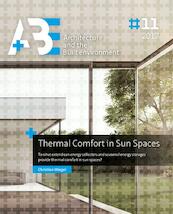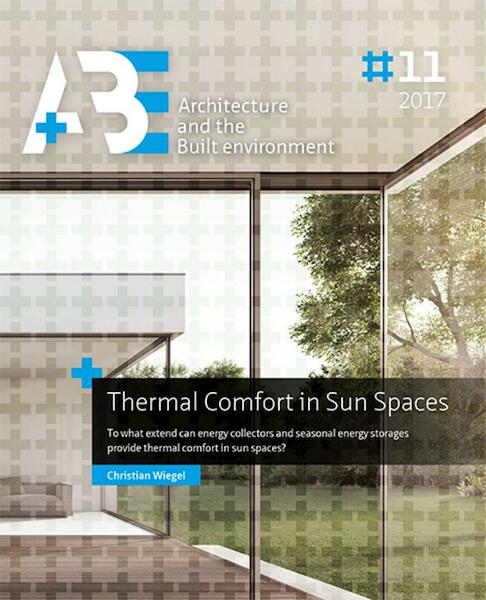| Prijs | € 57,50 |
Niet beschikbaar
Paperback | Oktober 2017 |
Beoordeel dit boek als eerste!Beschrijving
Specificaties
- Auteur
- Christian Wiegel
- Uitgever
- TU Delft Open
- ISBN
- 9789492516817
- Bindwijze
- Paperback
- Publicatiedatum
- Oktober 2017
- Categorie
- Wetenschappelijk
- Taal
- Engelstalig
- Aantal Pagina's
- 526
Beschrijving
Preparation for fossil fuel substitution in the building sector persists as an essential subject in architectural engineering. Since the building sector still remains as one of the three major global end energy consumer - climate change is closely related to construction and design.
We have developed the archetype sun space to what it is today : a simple but effective predominant naturally ventilated sun trap and as well as living space enlargement. With the invention of industrial glass orangery's more and more changed from frost protecting envelopes to living spaces from which we meantime expect thermal comfort in high quality.
But what level of thermal comfort provide sun spaces? And to what extend may sun spaces manage autarkic operation profiting from passive solar gains and, beyond that, surplus energy generation for energy neutral conditioning of aligned spaces? We deliver detailed information for this detected gap of knowledge.
We know about limited thermal comfort in sun spaces winter times.
This reasons the inspection of manifold collector technologies, which enable to be embedded in facades and specifically in sun space envelopes. Nonetheless, effective façade integrated collectors are ineffective in seasons with poor irradiation. Hence, the mismatch of offer and demand we have experienced with renewable energies ignites thinking about appropriate seasonal energy storages, which enlarges the research scope of this work. This PhD thesis project investigates on both, a yearly empirical test set up analysis and a virtual simulation of different oriented and located sun spaces abroad Germany. Both empirical and theoretical evaluation result in a holistic research focusing on a preferred occupation time in terms of cumulative frequencies of operational temperature and decided local discomfort, of potential autarkic sun space operation and prospective surplus exergy for alternative heating of aligned buildings. The results are mapped geographically for Germany.
Fossil fuel substitution, as far as this thesis elaborated, is closely related to the quality of thermal comfort, sun space orientation and energetic standard of the aligned building. Unexpectedly, spaces, which define envelopes incorporating collectors in combination with storage technologies both profit and suffer to some extend with respect to thermal comfort.
Schrijf een recensie
Specificaties
- Auteur
- Christian Wiegel
- Uitgever
- TU Delft Open
- ISBN
- 9789492516817
- Bindwijze
- Paperback
- Publicatiedatum
- Oktober 2017
- Categorie
- Wetenschappelijk
- Taal
- Engelstalig
- Aantal Pagina's
- 526











